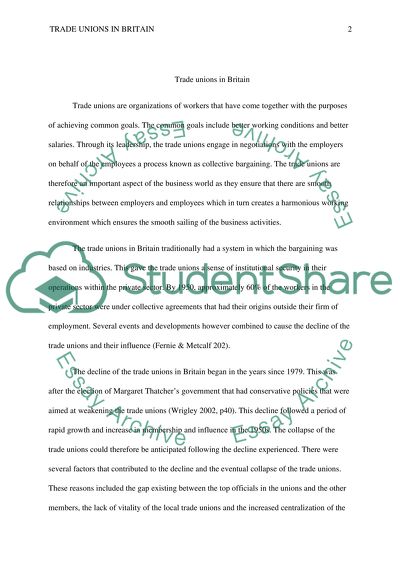Cite this document
(“Trade Unions in Britain Essay Example | Topics and Well Written Essays - 1750 words”, n.d.)
Retrieved de https://studentshare.org/marketing/1392080-employee-relations
Retrieved de https://studentshare.org/marketing/1392080-employee-relations
(Trade Unions in Britain Essay Example | Topics and Well Written Essays - 1750 Words)
https://studentshare.org/marketing/1392080-employee-relations.
https://studentshare.org/marketing/1392080-employee-relations.
“Trade Unions in Britain Essay Example | Topics and Well Written Essays - 1750 Words”, n.d. https://studentshare.org/marketing/1392080-employee-relations.


